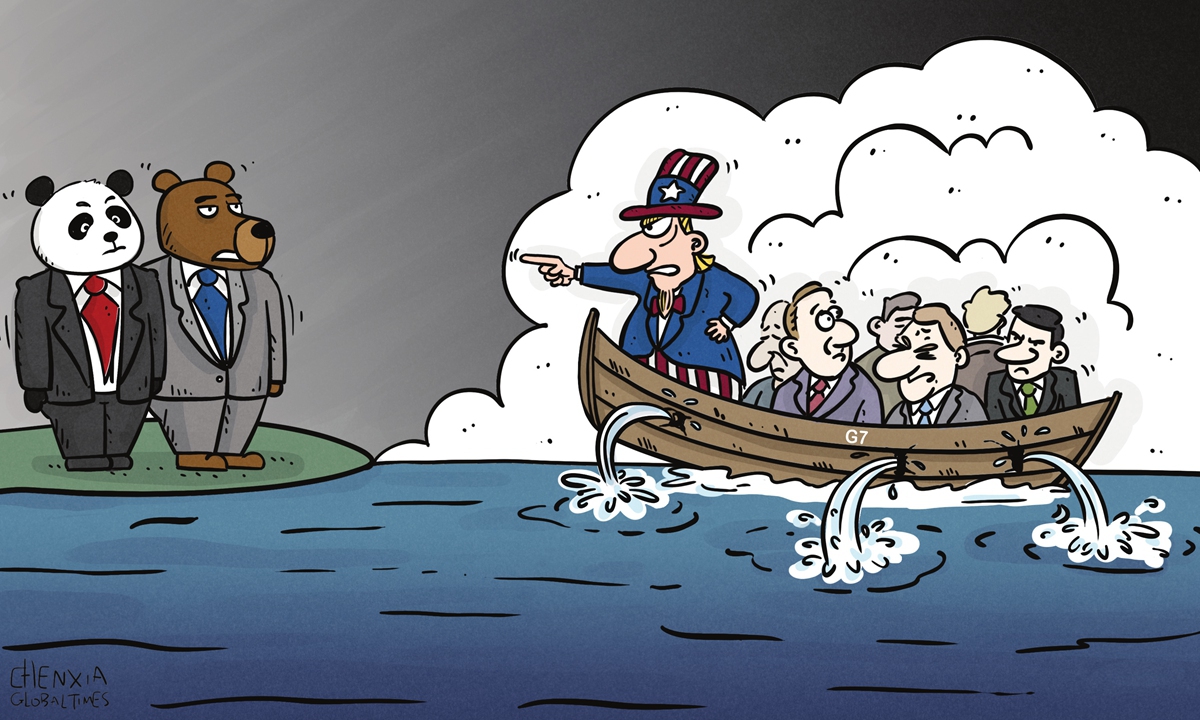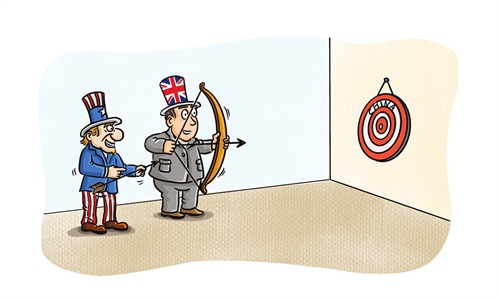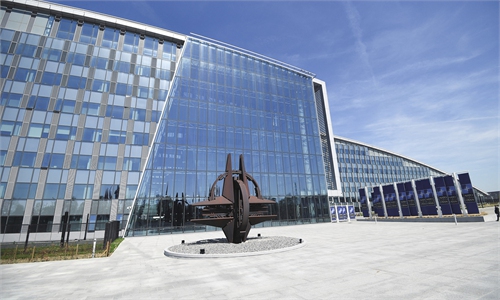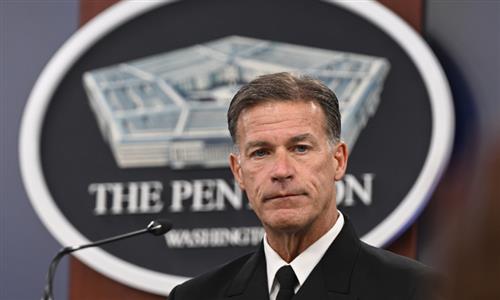
Illustration: Chen Xia/GT
When the current dynamics of China-Russia relations is discussed, the conversation often boils down to the concept of a "senior-junior partnership." A popular view - especially in the West - is that with more cooperation between the two nations, Russia is gradually, but inevitably, turning into a junior partner to China. When it comes to all the privileges, rights and responsibilities within the partnership, the junior partner has to operate under the guidance and supervision of the senior. The conclusion is that this dynamics cannot end well for the Russian side - the nation is doomed to lose a part of its sovereignty.
Let's have a closer look at this concept. Are there any particular indicators or benchmarks that tell us when and how a nation becomes the junior partner?
The first guess is that this should be mostly about bilateral trade. Conventional wisdom might suggest that by trading too much with Beijing, Moscow becomes overdependent on China, and this overdependence is becoming detrimental to Russia's sovereignty. However, sheer numbers may be deceptive. China is the main trade partner for around 140 nations all over the globe. Should we consider all of these nations to be Beijing's junior partners?
Maybe, being a junior partner is not about the absolute size of your trade, but about the trade's structure. The West maintains that Russia's exports to China are not diverse enough: Russia sells mostly oil and gas on a buyer's market, which turns Beijing into a deal-maker, and Moscow - into a deal-taker. This is not entirely true - Russia is consistently diversifying its exports to China, with agricultural products being the most graphic example.
When we dig deeper into to the military domain of China-Russia relations, we will see that Moscow has assisted Beijing with some military technologies. Russia delivered Su-35 fighter jets and S-400 air defense missiles, which have enhanced China's military capabilities. But it is well-known that Russia sells sophisticated military hardware to a broad range of countries, including India.
As for the West-assumed deliveries of China's weapons to Russia, China handles the export of military products prudently and responsibly and strictly controls the export of dual-use articles. It seems that Moscow has enough defense production capacities at its disposal and it does not need to look for assistance from Beijing.
Moreover, Russia and China routinely conduct joint military exercises. There is nothing particularly unique about this format of cooperation: Russia has military drills with a broad range of countries including Iran, Indonesia, Pakistan, Laos and even Nicaragua. None of these exercises can qualify as a sign of Russia becoming a junior partner with any of these nations.
Overall, there seems to be only one credible indicator that would suggest that Moscow is indeed turning into a "junior partner" of Beijing. As a "senior partner," China should have the capacities and the political will to contain Russia's freedom of action in international relations by forcing the Kremlin to adjust its foreign policy according to "friendly advice" coming from Beijing. But have we seen any specific indicators of this trend?
China and Russia do not necessarily see eye-to-eye on many important international matters. In fact, no two nations in the world have completely identical interests - no matter how close their relationship may be.
Furthermore, what alternative to partnering with China do Western politicians and analysts offer Moscow? Their logic suggests that instead of turning into a junior partner to China, Russia should become a junior partner to the US. Nonetheless, the reality is that the US cannot properly handle even the closest partners it has at its disposal now. If you fail to manage properly your relations with small nations, how do you expect a much larger nation like Russia to follow your leadership?
In the 21st century, the whole idea of junior and senior partners looks outdated and even archaic. True international partnerships are based on mutual respect, empathy and a carefully calibrated balance of interests.
Old hierarchical patterns in world politics will no longer provide for global peace or enhance global development.
The author is the academic director of the Russian International Affairs Council. opinion@globaltimes.com.cn




